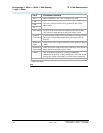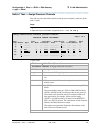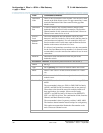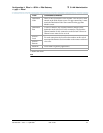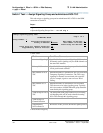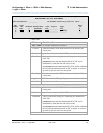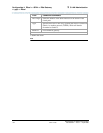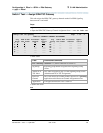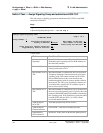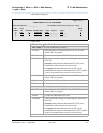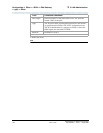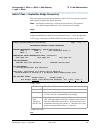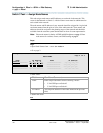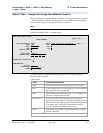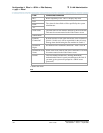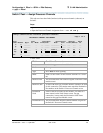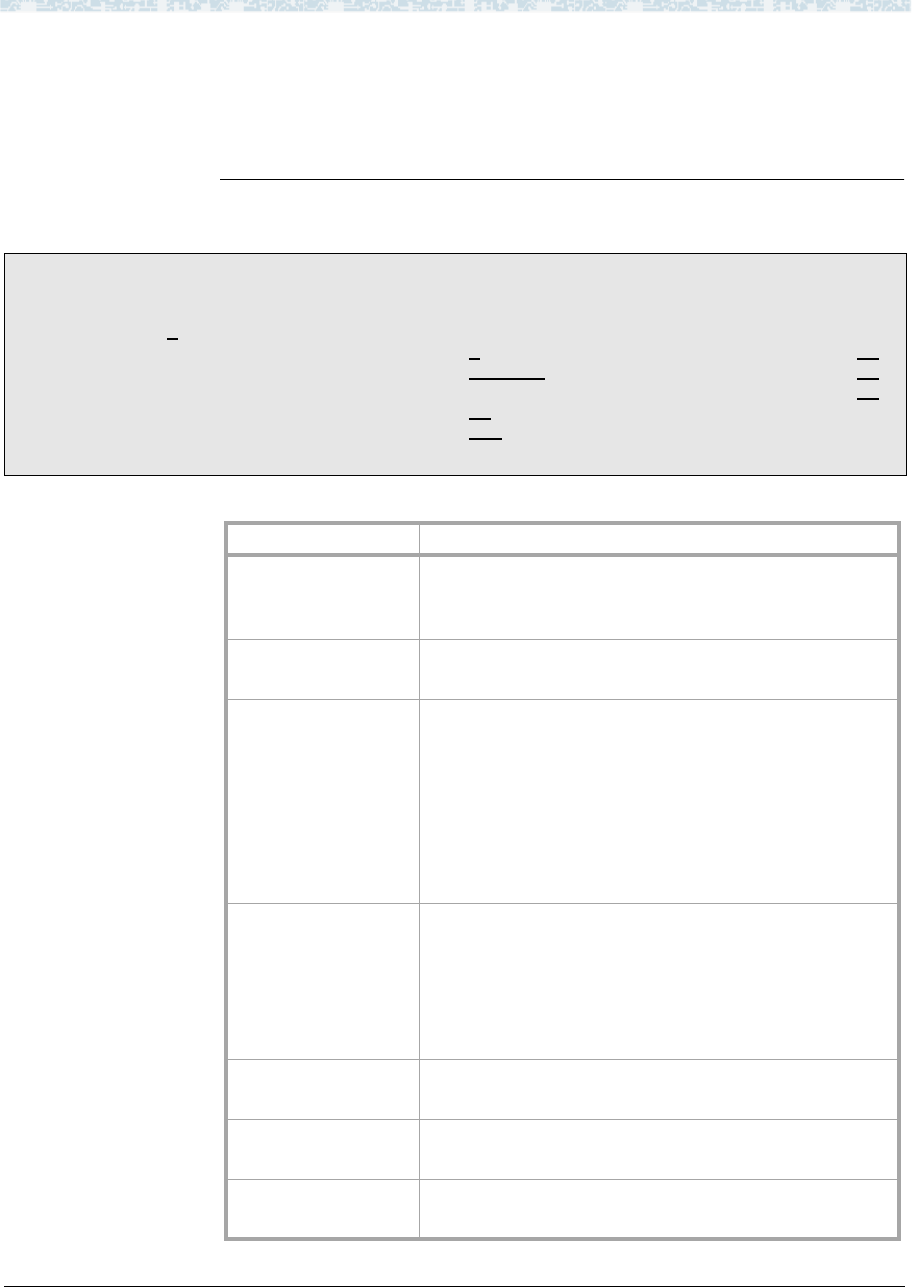
Configuration 4: R8csi <—ISDN—> R8si Gateway
<—ppp—> R8csi
3 C-LAN Administration
Administration for Network Connectivity
CID: 77730 555-233-504 — Issue 1 — April 2000
136
Switch 2 Task — Assign Signaling Group and administered NCA TSC
This task assigns a signaling group and an administered NCA TSC for the ISDN
connection to Switch 1.
Begin
Steps
> Open the Signaling Groups form — enter ch sig n
> Enter values
change signaling-group next
Page 1 of 5
SIGNALING GROUP
Group Number: 1
Associated Signaling? y
Max number of NCA TSC: 5_
Primary D-Channel: 01a1024 Max number of CA TSC: 23
Trunk Group for NCA TSC: 12
Trunk Group for Channel Selection: 21__
Supplementary Service Protocol: a__
Field Conditions/Comments
Associated
Signaling?
Specifies Facility-Associated Signaling (FAS) — the
D-channel carries signaling only for the B-channels on
the same DS1 interface.
Primary D-Channel Specifies D-Channel signaling on port 24 of the DS1
circuit pack located at 1a10.
Max number of NCA
TSC
Maximum number of simultaneous non-call-associated
Temporary Signaling Connections that can exist in the
signaling group. This number includes all NCA-TSCs
that are administered on this screen and those that
tandem through the switch in-route to another switch in
the network. The TSCs carry signaling for features not
associated with a specific call; for example, signals to
turn on Leave Word Calling.
Max number of CA
TSC
Maximum number of simultaneous call-associated TSCs
that can exist in the signaling group. Typically, this is the
number of ISDN-PRI trunk group members controlled by
this signaling group. If the connection is using the public
network (SDN), the total NCA + CA TSCs cannot
exceed the number ordered.
Trunk Group for
NCA TSC
The trunk group used by the NCA-TSCs.
Trunk Group for
Channel Selection
Leave blank — this field is currently not used.
Supplementary
Service Protocol
a indicates AT&T protocol; b indicates QSIG protocol.



